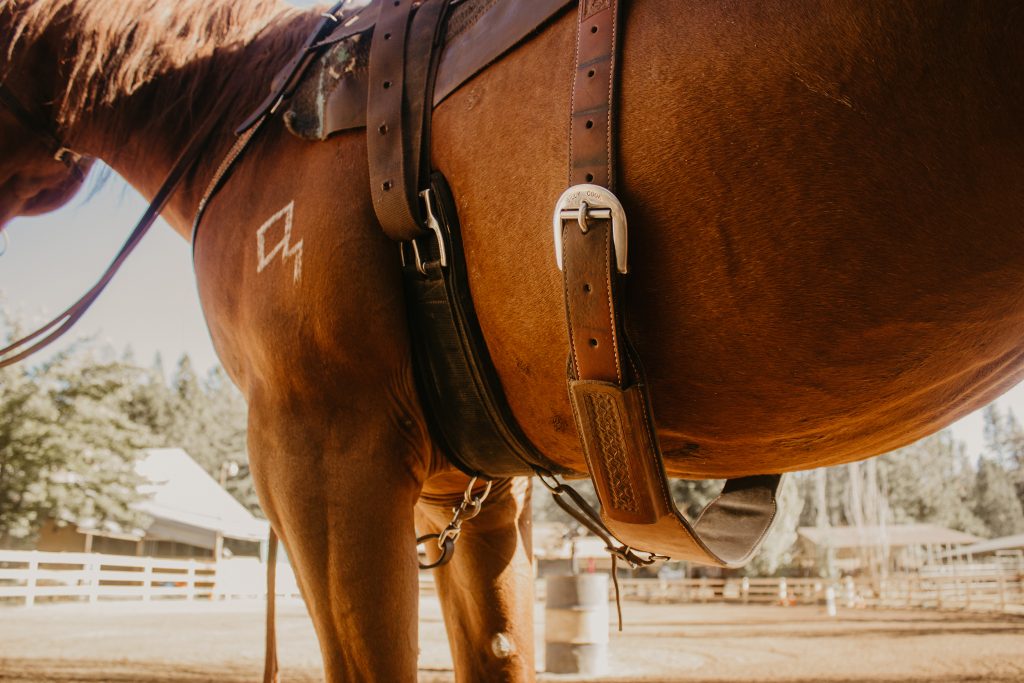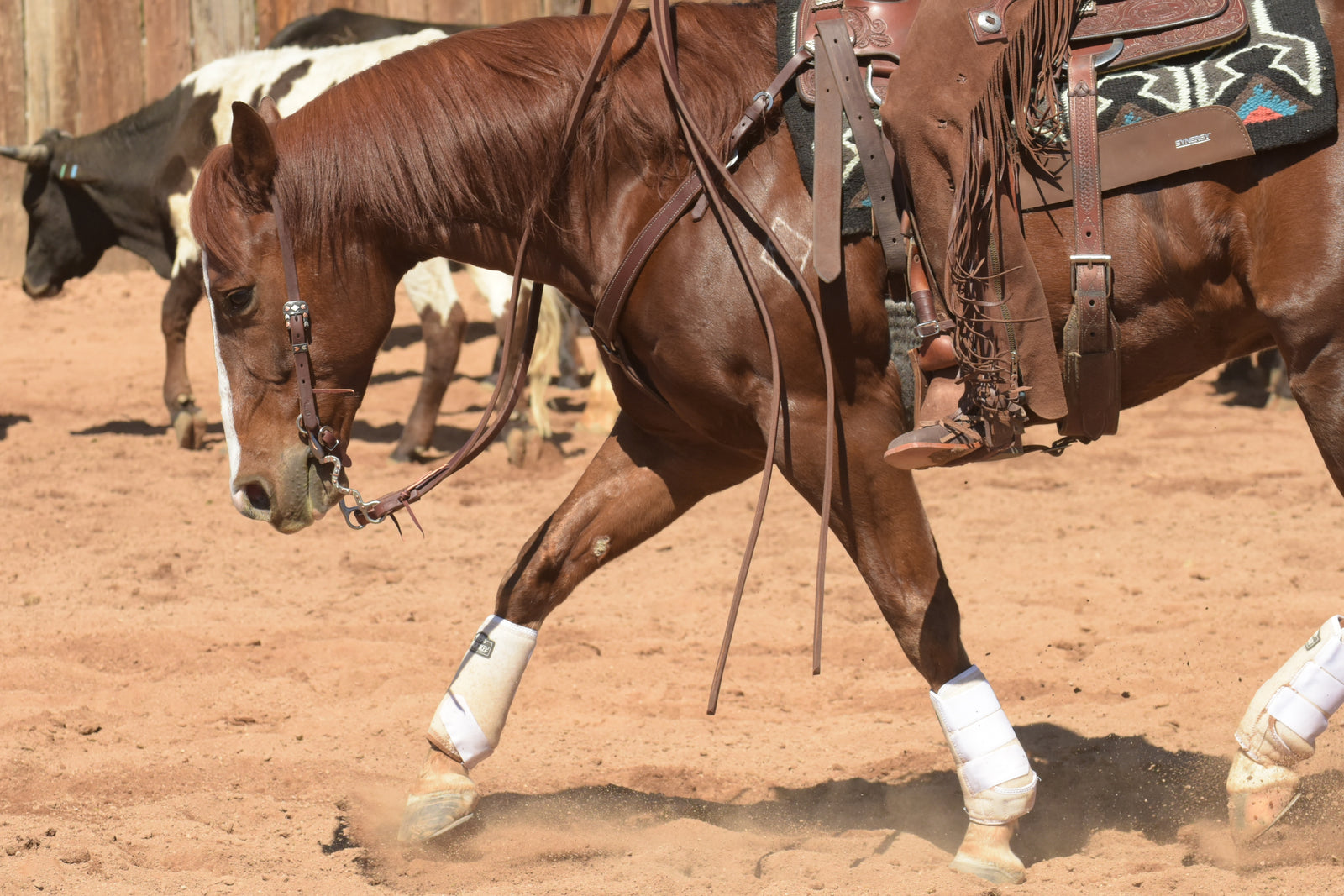A back cinch is not a necessary piece of equipment for all disciplines of riding, however it can be very crucial in others.
English, eventing, and dressage disciplines are several examples where a back cinch is not needed (and for these specifically, not even an option). Other events where riders may choose to opt out of having a back cinch can include barrel racing, reining, trail riding, and western pleasure.
There are several other riding disciplines, however, where back cinch can commonly be seen in use. These can include roping events such as tie down, breakaway roping, steer roping and team roping.
Back cinches are necessary in these events because when a contestant ropes their stock and then begins to dally, the amount of weight and pressure put on the front of their saddle increases significantly and can pull heavily on the horse’s shoulder and wither area. A back cinch helps prevent the back of the saddle from lifting up as the front of the saddle is pulled downward, and helps to more evenly distribute the weight.
In reining, a back cinch also helps prevent the lifting of the back of the saddle when a horse is performing a sliding stop.
Trail riders may also opt to have a back cinch, which comes in handy when horses are in rough terrain and prevents the saddle from tipping forward when a horse is on a steep downhill slope.
Depending on what events you are participating will depend if it’s important to have a back cinch or not.
How should a back cinch fit?
Ensuring proper fit of your back cinch is very important.
Since a back cinch is designed to hold the saddle snug and prevent the cantle area from riding under frontal pressure, it should fit snug against your horse, but not be tight.

There should still be enough space to slide your hand in flat in between the cinch and the horse’s stomach. Adjust the back cinch so that it is even on both sides and the center dee of the cinch aligns with the horse’s sternum.
By having the back cinch snug against your horse at the beginning of the ride, you are making sure that even as the horse moves and works the back cinch will not hang too low.

Isn’t it more comfortable for the back cinch to hang loose?
No! When training a horse to get used to a back cinch, many riders make the mistake of hanging it too low. If your cinch is too low, there are several unfavorable scenarios that may happen:
- The horse’s back hoof can get caught in the cinch and cause a wreck.
- The cinch may move around unexpectedly and bump the horse, causing a reaction.

We see a lot of back cinches that hang too low, but this not only is a safety hazard but actually defeats the purpose – to help support the weight of the saddle under uneven distribution!
Does my back cinch require extra accessories?
It is very important to use a strap that connects the front and back cinches when you are going to use both. When in use, the girth connector strap should appear straight.
This strap should be tight enough that is prevents the back cinch from sliding backwards towards the horse’s flank, which may cause them to spook, buck, or bolt.
In review, back cinches have a practical use for a lot of horsemen, but may not always be functionally needed. It is important to have your back cinch appropriately adjusted by being snug but allowing a hand to fit easily between the cinch and horse. Having a back cinch too tight and too far back can cause your horse to be in discomfort and act out of character, sometimes you maybe even in for a wild ride.
Hopefully these tips and guidelines will help you and your horse have a more comfortable and safe ride!
–Brooke Kennedy, Team Weaver Member





